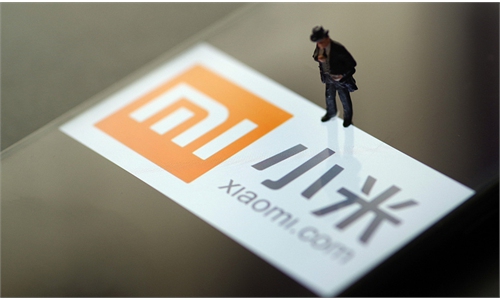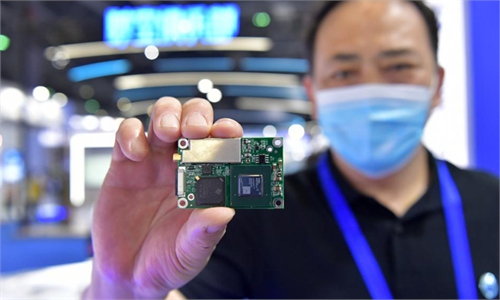GT Voice: US callous in blocking business deals between China and South Korea
US callous in blocking business deals between China and South Korea

quantum chips Photo: CFP
The Biden administration's clampdown on Chinese companies trying to invest abroad in chip-related assets appears to be moving in a dangerous direction, one that requires vigilance from the global high-tech players.
In a filing to the US Securities and Exchange Commission, South Korean system chip manufacturer Magnachip Semiconductor stated that the US Treasury Department said its acquisition deal with Chinese private equity fund Wise Road Capital posed "risks to the national security of the US," and is awaiting US President Joe Biden's decision on the matter, the Reuters reported on Tuesday.
In mid-June, the Committee on Foreign Investment in the United States (CFIUS) under the Treasury Department issued an interim order blocking Wise Road from purchasing Magnachip, putting the deal on hold.
While it is not new for the US to seek to contain China's technological development in order to maintain the US technology advantage, plans to extend the CFIUS jurisdiction over global tech acquisitions under the premise of national security considerations should raise a red flag, for it not only impeding the development of Chinese tech companies but also disrupting the growth of the global tech sector.
In the case of the Magnachip purchase, the US regulatory intervention doesn't hold water at all.
In March, Wise Road agreed to buy Magnachip in a deal valued at $1.4 billion. Since Magnachip's operations, including R&D, production, and sales, are mostly based in South Korea, the company's global market share is far below the threshold that requires its acquisition to be subject to review by regulators in other countries.
It is understandable that the South Korean government may face a tricky choice on the matter, against the backdrop of the escalating strategic rivalry between China and the US. Yet, it is still worth noting that if the normal business practices of South Korean companies suffer from unnecessary foreign interference, their government needs to take necessary measures to protect its companies' interests.
If anything, the CFIUS review over the proposed Magnachip deal is unprecedented and represents a dangerous trend for the whole industry. If the US succeeds in blocking the deal this time, it could set a very bad precedent for global high-tech mergers and acquisitions, further consolidating the industrial concentration in the US. A move in this direction is not good for Chinese tech companies nor is it favorable for South Korean companies.
China and South Korea are important links of the global supply chain. Despite the fierce competition between the industries of the two countries, their mutual interests are also obvious, especially at a time when US apparently wants to take a monopolistic role in the global chip-making sector.
In this sense, it is necessary for chip companies in China and South Korea to strengthen coordination and cooperation so as to safeguard their mutual interests.
Vigilance against US aggressive intervention also applies to other countries. If all tech-related acquisitions face the risk of US regulatory scrutiny in the future, it would give US technology companies a distinct advantage in terms of M&As at the expense of the chip industry of all other countries.




